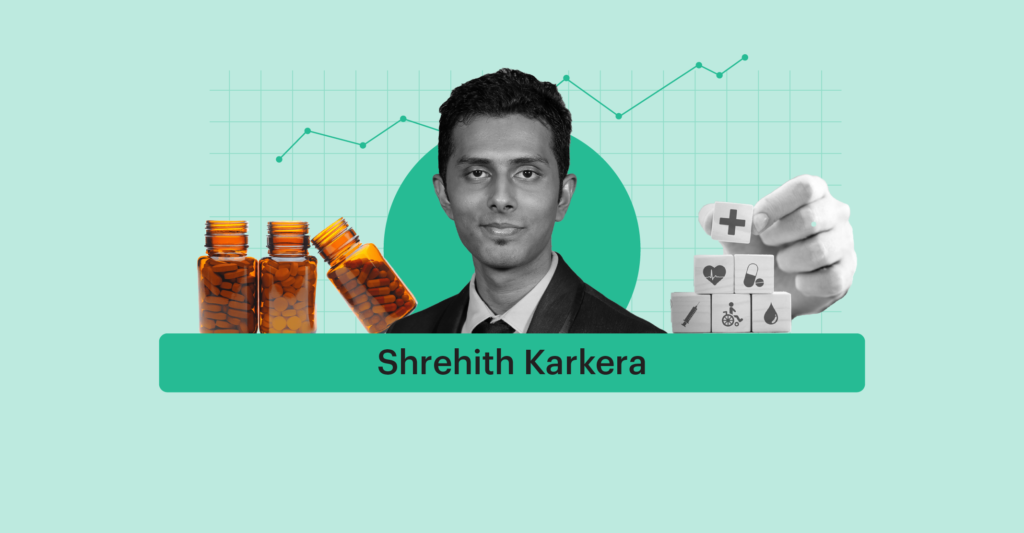Last Updated on Feb 21, 2024 by Harshit Singh
You may scoff at the title at first, as health insurance is not an investment product. So how can it help you build wealth?
Let me explain.
If you follow any sports, let’s consider football. How does one team win over the other? Of course, whoever scores more goals WINS. So, it can be a goal feast with a scoreline looking like 8-6. The team scoring 8 goals won. But there is another way to win the match. The winning team somehow scores one goal and prevents the other team from scoring any goal using its extremely smart defensive strategy. Ever heard of the term- Catenaccio (“door-bolt”) defence strategy, popularly adopted by the Italian national and regional soccer teams?
Health insurance is similar. Your defence strategy on wealth is to let your investment play out without worrying about the sudden outflow due to health concerns.
Long story short, health insurance can help you build wealth in the long run by protecting you from the financial burden of unexpected medical expenses. You can then cut down on your emergency funds and put them to better use on good return investment schemes.
Table of Contents
Different types of health insurance
When it comes to health insurance, the ‘one size fits all’ approach does not work. All products designed by health insurance companies are on a use-case basis.
There are different types of health insurance:
- Individual health insurance: These are standardised plans created by the insurance company to cover specific use cases. Here the individual and the insurance company get into a one-to-one agreement, hence the name.
For example, there are plans that cover diabetes from day 1 instead of putting it under standard waiting periods. - Employee health insurance: These plans are customised policies offered by your employer to cover you and your family against hospitalisation expenses.
- Family floater health insurance: This plan covers your entire family, i.e., your spouse and kids, under the same umbrella contract.
- Maternity health insurance: This type of insurance coverage specifically covers the costs associated with pregnancy and childbirth. This may include prenatal and postnatal care, delivery costs, and coverage for complications that may arise during pregnancy. Some plans also provide coverage for fertility treatments such as in-vitro fertilisation. Maternity health insurance can be purchased as a standalone policy or as an add-on to an existing health insurance policy.
- Senior citizen health insurance: This refers to health insurance plans specifically designed to meet the healthcare needs of elderly individuals.
- Group health insurance: This is a plan curated for a group of people. The sum insured, premium, and all other features are negotiated by one representative on behalf of the group.
Building wealth through health insurance
Here’s how you can build wealth through health insurance:
- Uninterrupted SIPs: When you have proper health insurance and emergency funds, at the time of emergencies or medical expenses, you don’t have to interrupt your SIPs or withdraw from existing mutual funds prematurely. Use Tickertape’s Mutual Fund Screener to get the list of mutual funds in India and sort them according to your preferred parameters like AUM (assets under management), NAV (net asset value), 1-yr returns, etc.
- More money for investments: In most scenarios, people keep a higher emergency fund expecting it to be an ideal replacement for health risks and insurance costs. Let’s just do a quick maths to understand the ramifications of the same on your financial plan. You must keep an Rs. 10 to 15 lakh emergency fund that earns a much less return than a mutual fund as it needs to be liquid.
With health insurance where you pay an annual premium of ~Rs. 12,000 for Rs. 10,00,000 coverage, you can cut down on your emergency fund by >50%. So imagine earning a 3-4% higher return on Rs. 10 lakh annually; that’s Rs. 35,000. It covers your health insurance premium and gives you more peace of mind.
- Protection from ‘Death by 1,000 cuts’: Health ailments are rare, but once they come, it’s not uncommon to see multiple hospitalizations or diseases that need years to heal. God forbid, but such situations keep eating into your savings for a long duration of time. Health insurance prevents such a situation for you.
- Save taxes: A penny saved is a penny earned. Health insurance comes with an additional tax-saving option through Section 80D. You can save up to Rs. 22,500 on taxes depending on your tax bracket, applicable 80D deductions, and preventive health checkup.
Conclusion
When you have health insurance, you don’t have to worry as much about paying for medical treatment out of pocket, which can be very expensive. This can help you save money that you can use to invest and build wealth over time. Additionally, having health insurance can also give you peace of mind, knowing that you are protected in the event of an unexpected illness or injury.
It’s also important to note that investing in health insurance is not just a one-time decision, it’s important to review and renew coverage as per your personal needs.
Also, a point to note is that while health insurance is an important aspect to consider, it should be a part of a comprehensive financial plan, which would consider other aspects like emergency funds, retirement planning, taxation, and insurance.
Frequently Asked Questions
- What is the ideal coverage or sum assured that one should pick?
It depends on several factors like location, usage, etc. Generally, Rs. 10-15 lakh with a restore option is good enough for most people.
- When is the ideal time to buy health insurance?
The ideal time is when you are healthy and don’t need it, as premiums shoot up when you have ailments or are old.
- Why do I need health insurance if I am fit?
We live in a highly uncertain world, and health ailments come unannounced. Health insurance gives protection against any kind of hospitalization, including accidents, which has nothing to do with our health or fitness.
- Ideal Policy Period for Term Insurance - Apr 12, 2023
- Should You Buy Multi-Year Health Insurance? - Mar 10, 2023
- Why Should You Buy Term Insurance in Your 20s? - Feb 17, 2023




